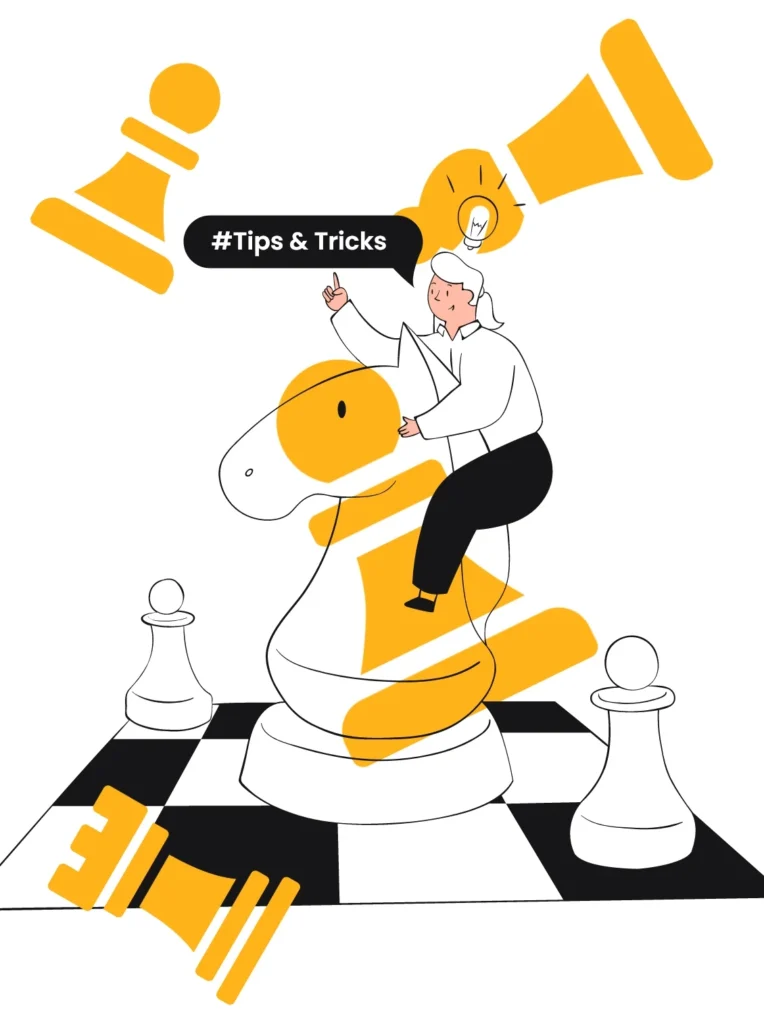Tips for Playing

Focus on Controlling the Center
At the beginning of the game, it’s essential to control the central squares (e4, d4, e5, d5) as this gives you more maneuvering and attacking opportunities. Try to quickly develop pieces toward the center instead of only advancing pawns or delaying development.
Develop Pieces, Not Just Pawns
Don’t spend too much time advancing pawns in the opening phase. Instead, focus on developing your minor pieces (knights and bishops) and bringing your queen and rooks into play. Good piece coordination will help you both in attack and defense later.
Don’t Forget the Safety of Your King
Early castling is an important part of king safety. Try to castle as soon as possible to avoid threats from your opponent. A well-protected king is a foundation for a successful game.
Don’t Rush to Sacrifice a Piece
Piece sacrifices can be beneficial, but only if they lead to an advantage, like an attack on the king or a strengthened position. Make sacrifices with purpose, not randomly.
Plan Several Moves Ahead
Good chess players always think a few moves ahead. Continuously evaluate the possible moves your opponent might make and how they would impact your position.
Interesting Facts About Chess
Chess is One of the Oldest Games in the World
Chess originated in India over 1500 years ago and has since evolved, but it has kept its essence as an intellectual game.
A Famous World Chess Champion
Garry Kasparov, one of the most renowned chess players of all time, was world champion from 1985 to 2000. His playing style and intellectual achievements have made him a legend in the chess world.
Chess Tournaments Can Have Million-Dollar Prizes
Modern chess tournaments can offer significant prize money. For example, the World Chess Championship and other prestigious tournaments may have prize funds reaching millions of dollars.
A Chess Game Can Last Up to 6 Hours
Some chess games, especially at high levels, can last several hours. One of the longest matches in chess history lasted 20 hours!
Chessboards and Pieces Have International Standards
In international tournaments, a standard chessboard and pieces are used, with strictly defined sizes. This helps make games more objective and consistent for all participants.

Helpful Chess Strategy Tips

Use the Principle of "Activity"
Aim to make moves that activate your pieces and give them more attacking options. The more active your pieces are, the greater your chances of winning.
Keep Pawns in a Solid Structure
Avoid creating “isolated pawns” or weak pawns that are easily attacked. An ideal pawn structure is when they protect each other and can be advanced easily in the future.
Learn Endgame Fundamentals
Games are often decided in the endgame, not the opening. Study the basic principles of playing with a few pieces and pawns on the board. A strong endgame can be the decisive factor in winning.
Counterattack When Defending
Defense doesn’t always mean playing passively. Sometimes, it’s better to counterattack to turn the game in your favor and put your opponent in a difficult position.
Don’t Ignore Pawns in the Middlegame
Pawns are often seen as “less important” pieces, but they can be crucial in your strategy. Don’t forget to advance them toward the end of the board to promote them to a queen and create a threat for your opponent.




